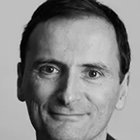 |
| WORKSHOP 2 |
|
 |
| . |
|
|
Antonio Acin
ICFO, Spain
Invited – Workshop 02: Quantum Information theory, algorithms, networks & protocols
Antonio Acín is an ICREA Research Professor at ICFO-The Institute of Photonic Sciences. He has a degree in Physics from the Universitat de Barcelona (UB) and in Telecommunication Engineering from the Universitat Politècnica de Catalunya. He got his PhD in Theoretical Physics in 2001 from the UB. After a post-doctoral stay in Geneva, he joined ICFO in 2003. At ICFO, Acín leads the Quantum Information Theory group. The group activities focus on quantum information theory and quantum communication, with an emphasis on quantum cryptography, but also cover other fields such as quantum optics, many-body physics, quantum thermodynamics, of the foundations of quantum physics. His research has been awarded with 4 grants from the European Research Council: 1 Starting, 1 Proof of Concept, 1 Consolidator and 1 Advanced Grant, the latter starting in 2020. He also received an AXA Chair in Quantum Information Science in 2016.
|
|
|
|
|
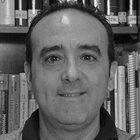 |
| TUTORIAL |
|
 |
| . |
|
|
Ramon Aguado
ICMM-CSIC, Spain
Topological Matter Tutorials
I am a physicist with more than 15 years of research experience. My research focuses on quantum effects in electronic transport through nanostructures (quantum dots, carbon nanotubes, nanowires, etc). During the last few years my activity has focused on hybrid superconductor-semiconductor systems where interesting physical effects such as Kondo, BCS superconducting pairing or magnetic states compete. This fundamental interest, together with the possibility of obtaining Majorana fermions in topological superconductors based on such systems, makes hybrids one of the more exciting topics in modern condensed matter physics.
|
|
|
|
|
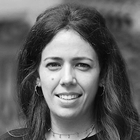 |
| INVITED |
|
 |
| . |
|
|
Ana Asenjo-Garcia
Columbia University in the city of New York, USA
Invited – Plenary Session
Ana Asenjo-Garcia is an Associate Professor of Physics at Columbia University. Her research focus is on theoretical quantum optics and its intersection with many-body physics and quantum information science. In particular, she is interested in understanding out-of-equilibrium physics of large, open quantum systems, with the aim of developing scalable and efficient applications in quantum information storage and processing, non-linear optics, and metrology. She received her Ph.D. degree from Universidad Complutense de Madrid in 2014. She was a Marie Curie postdoctoral fellow at the Institute of Photonic Sciences (ICFO) in Barcelona, and an IQIM Fellow at the Institute of Quantum Information and Matter at Caltech. She joined Columbia University as an assistant professor of physics in 2019.
|
|
|
|
|
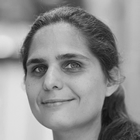 |
| WORKSHOP 4 |
|
 |
| . |
|
|
Audrey Bienfait
ENS Lyon, France
Invited – Workshop 04: Devices & Technologies for Quantum Computing
Audrey completed her Ph.D. in the Quantronics group at CEA Saclay (France) in 2016. There, she worked with Patrice Bertet on coupling bismuth donor spins to high quality factor small-mode-volume superconducting resonators. The experiments applied circuit quantum electrodynamics techniques to electron spin resonance and improved the spin signal detection sensitivity and implemented a spin initialization mechanism via the Purcell effect. She then realized a post-doc in the Cleland group at the University of Chicago (USA), where she coupled remote superconducting qubits using traveling phonons and realized acoustic interferometry experiments. In 2019, she joined the Quantum Circuit group as a CNRS researcher. She received the Bruker thesis prize and a Paris-Saclay university award for her graduate research work. Her current research interests are electronic spins, superconducting circuits, and various microwave transduction schemes.
|
|
|
|
|
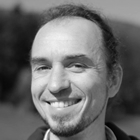 |
| WORKSHOP 7 |
|
 |
| . |
|
|
Frédéric Bonell
Spintec, France
Invited – Workshop 07: Topological Magnetism
Frédéric Bonell is a research scientist at CNRS in SPINTEC, Grenoble. He received his PhD degree in physics from the Institut Jean Lamour (IJL) - University of Lorraine (France) in 2009. From 2010 to 2019, he was a postdoctoral fellow at Osaka University, then a Ramón y Cajal scientist at the Catalan Institute of Nanoscience and Nanotechnology (ICN2) in Barcelona. His research activities lie at the interface between material science and spintronics. They are dedicated to the study of magnetism and spin transport/dynamics in magnetic multilayers grown by molecular beam epitaxy. His recent interests concern spin-orbitronics with epitaxial van der Waals materials, including topological insulators and 2D magnets.
|
|
|
|
|
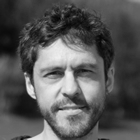 |
| WORKSHOP 7 |
|
 |
| . |
|
|
Olivier Boulle
CEA, France
Invited – Workshop 07: Topological Magnetism
O. Boulle holds a Phd in Material science from the University Paris VI. He did his phd at the Unité mixte de physique CNRS/Thales under the supervision of A. Fert. Since 2010, he is CNRS permanent researcher in Spintec, Grenoble (France). He has over 20 years of experience in spintronics fundamental science and devices. His research interests include the manipulation of nanomagnets and topological spin textures via spin polarized current and its application to memory and logic spintronics devices. He co-authored more than 62 publications in peer-reviewed journals.
|
|
|
|
|
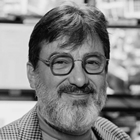 |
| INVITED |
|
 |
| . |
|
|
Philippe Bouyer
University of Amsterdam/Quantum Delta NL, The Netherlands
Invited – Plenary Session
Dr. Philippe Bouyer is currently coordinator of Quantum Delta NL Third Catalyst (KAT 3) programme: Quantum Sensing Applications, Deputy Director of the Institute d’Optique (Nouvelle Aquitaine Branch) and former founding Director of the Laboratory of Photonics, Digital and Nanosciences at CNRS, IOGS, Université Bordeaux. In addition, he is co-founder and advisory chief scientist of Muquans (now iXBlue), a France-based company dedicated to quantum precision sensors. Dr. Bouyer received his Ph.D. in 1994 from the École Normale Supérieure/laboratoire Kastler Brossel, Université Paris Sud. Subsequently, he was a visiting professor of physics at Stanford University in Palo Alto, California, among other positions. His current research interest concerns matter-wave interferometry for tests of general relativity in microgravity and detection of gravitational waves.
|
|
|
|
|
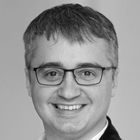 |
| WORKSHOP 6 |
|
 |
| . |
|
|
Jorge Casanova
EHU/UPV, Spain
Invited – Workshop 06: Devices & Technologies for Quantum Sensing
Jorge Casanova is a Ramón y Cajal researcher at University of the Basque Country in Spain. His research activity focuses on developing applications of nuclear magnetic resonance at the microscale and nanoscale for sensing. In addition, he is also engaged on the theoretical development of quantum simulations and quantum algorithms, in different aspects of the fundamental light-matter interaction, as well as in the design of high-fidelity quantum information processing methods using detailed models of different quantum platforms.
|
|
|
|
|
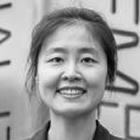 |
| WORKSHOP 6 |
|
 |
| . |
|
|
Deung-Jang Choi
CFM-CSIC, UPV/EHU, Spain
Invited – Workshop 06: Devices & Technologies for Quantum Sensing
Deung-Jang, Choi is an Ikerbasque Associate at Centro de Física de Materiales (CSIC-UPV/EHU). Her research line focuses on harnessing the potential of surface-supported spins for quantum technologies. Her work is dedicated to advancing the manipulation and control of individual spins on surfaces. Her expertise spans precision engineering of superconductor-supported magnetic systems, and the cutting-edge application of time-dependent modes in scanning tunneling microscopy
|
|
|
|
|
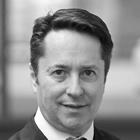 |
| PLENARY |
|
 |
| . |
|
|
Ignacio Cirac
Max Planck Institute of Quantum Optics, Germany
Plenary Talk
Born on October 11, 1965 in Manresa, Spain. Licenciado (graduate) in theoretical physics, Universidad Complutense de Madrid (1988), PhD in Physics, Universidad Complutense de Madrid (1991), Fellow "Formación del Personal Investigador" (Prog. General) (1989-1991), "Profesor Titular de Universidad", Departamento de Física Aplicada, Universidad de Castilla-La Mancha (1991-1996), Research Associate, Joint Institute for Laboratory Astrophysics, University of Colorado (1993-1994), Professor, Institute for Theoretical Physics, Leopold Franzens University Innsbruck (1996-2001), Director and Scientific Member Max Planck Institut of Quantum Optics (since 2001), Honorary Professor, Technical University of Munich (since 2002).
|
|
|
|
|
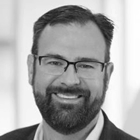 |
KEYNOTE
Industrial Forum |
|
 |
| . |
|
|
James S. Clarke
Intel, USA
Keynote - Industrial Forum
Jim Clarke is the director of the Quantum Hardware research group within Intel’s Technology Development Organization. Jim launched Intel’s Quantum Computing effort in 2015, as well as a research partnership with QuTech (TU Delft and TNO). His group’s primary focus is to use Intel’s process expertise to develop scalable qubit arrays. In 2018, Jim worked with industry leaders and the Intel policy group to influence the passage of U.S. National Quantum Initiative Act. He currently sits on the White House National Quantum Advisory Committee. Prior to his current role, Jim managed a group focused on interconnect research at advanced technology nodes as well as evaluating new materials and paradigms for interconnect performance. He has co-authored more than 100 papers and has over 175 patents. Prior to joining Intel in 2001, Jim completed a B.S. in chemistry at Indiana University, a Ph.D. in physical chemistry at Harvard University and a post-doctoral fellowship in physical organic chemistry at ETH, Zürich.
|
|
|
|
|
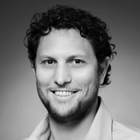 |
INVITED
Industrial Forum |
|
 |
| . |
|
|
Yonatan Cohen
Quantum Machines, Israel
Invited - Industrial Forum
Dr. Yonatan Cohen - Quantum Machines - Entrepreneur; co-founder and ex-managing director of Weizmann Institute’s entrepreneurship program; completed his MSc and PhD in Prof. Moty Heiblum’s lab at the Weizmann Institute of Science in Israel working on quantum electronics, superconducting-semiconducting devices, and microfabrication; published works in peer-reviewed journals; completed BSc in physics and math at the University of Washington; received the Ruth and Prof. Abraham (Edek) Blaugrund Prize for academic excellence (2018), awarded yearly to students from the Weizmann Institute of Science. Currently CTO of one of the leading companies working in quantum control.
|
|
|
|
|
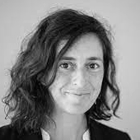 |
| WORKSHOP 3 |
|
 |
| . |
|
|
Sonia Conesa Boj
TU Delft, The Netherlands
Invited – Workshop 03: Growth and characterization of quantum materials for quantum technologies
Prof. Sonia Conesa-Boj obtained her Ph.D. in Nanoscience and Nanotechnology at the University of Barcelona (Spain) in 2011. Afterwards she moved to a postdoctoral research position at EPFL Lausanne, funded by a Marie-Heim Vogtlin personal fellowship awarded by the Swiss National Science Foundation. After a second postdoc in The Netherlands, in 2016 Dr. Conesa-Boj became Assistant Professor at the Department of Quantum Nanoscience and the Kavli Instiuture of Nanoscience at TU Delft, and since 2020 she's tenured Associate Professor there. The focus of her research is developing novel approaches for the growth and characterisation of low-dimensional nanoscale materials, from nanowires to van der Waals layered materials. She has demonstrated how the exploitation of state-of-the-art Transmission Electron Microscopy techniques provide a unique window to unravel the physical properties of novel nanomaterials. Dr. Sonia Conesa-Boj is the author of more than 40 peer-reviewed publications and her research has been supported, among others, by the award of an ERC Starting Grant and a Dutch "Top Kennis en Innovatie" Consortium grant.
|
|
|
|
|
 |
INVITED
Industrial Forum |
|
 |
| . |
|
|
Alexandre Dauphin
PASQAL , France
Invited - Industrial Forum
Alexandre Dauphin is the VP Quantum simulation at PASQAL, a neutral atom quantum computing company. He and his team work on applications from condensed matter to quantum chemistry that can be quantum simulated on PASQAL quantum processing units. During his career, he has worked on a broad range of topics going from quantum simulation of quantum many-body physics and topological phases of matter to machine learning applied to physics and quantum machine learning. In 2019, he received the New Journal of Physics early career award.
|
|
|
|
|
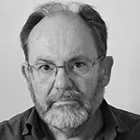 |
| TUTORIAL |
|
 |
| . |
|
|
Athanasios Dimoulas
NCSRD, Greece
Topological Matter Tutorials
Dr. Athanasios Dimoulas is Research Director at NCSR-DEMOKRITOS in Athens. After receiving his PhD for the U. Crete/FORTH he served as post doc at the U. Groningen, CALTECH and U. Maryland College Park before joining NCSR DEMOKRITOS. He is founder and head of Epitaxy and Surface Science Lab (ESSL) of the Institute of Nanoscience and Nanotechnology since 1999. He and his team has contributed to scientific excellence receiving an ERC advanced grant as well as Marie Curie and FET grants. Dr. Dimoulas has also received a Chair of Excellence appointment at CEA and the U. Grenoble Alpes for the development of MBE growth of 2D Materials. He is currently leading the Graphene flagship initiative project 2D-ENGINE. He has also been selected to act as director of the project ARSYF of the Romanian Recovery and Resilience Plan for the development of Neuromorphic technologies. His interests include MBE growth of 2D topological materials and ferroelectric Hafnia-based oxide memristor electronic synapses for use in edge AI applications
|
|
|
|
|
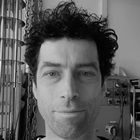 |
| WORKSHOP 6 |
|
 |
| . |
|
|
Joseph Dufouleur
IFW Dresden, Germany
Invited – Workshop 06: Devices & Technologies for Quantum Sensing
|
|
|
|
|
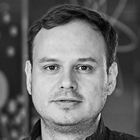 |
| WORKSHOP 1 |
|
 |
| . |
|
|
Dmitri Efetov
LMU, Germany
Invited – Workshop 01: Topological Quantum Matter: materials growth, characterization & theory
Prof. Dr. Dmitri K. Efetov (M) received a Diploma (M.Sc.) in Physics from ETH Zurich (CH) in 2007. Subsequently Dmitri earned a M.A., M. Ph. and Ph.D. in Physics from Columbia University (USA) in 2014, under the supervision of one of the pioneers of graphene Prof. Dr. Philip Kim, with a thesis titled “Towards inducing superconductivity into graphene”. Dmitri then worked as a Postdoctoral Researcher at the Massachusetts Institute of Technology (MIT, USA) in the group of Prof. Dr. Dirk Englund, developing ultra-fast microwave thermometry and single photon detectors based on graphene. Since 2017 Dmitri was an Assistant Professor and Group Leader at ICFO (SP), and since 2021 is a Full Professor (W3) and Chair of Solid State Physics at LMU Munich (GER), with a research program that concentrates on the investigation of novel “moiré materials” at the intersection of condensed matter physics, optics and quantum science. Prof. Efetov received the Charles H. Towns Award for his outstanding research achievements during his PhD, the Obra Social ”laCaixa” Junior Leader Fellowship, an ERC Starting Grant, was a finalist of the LaVanguardia Science Prize, for his ground-breaking discovery of new states in “magic” angle graphene and received the IUPAP Early Career Scientist Prize in Semiconductor Physics, for ground-breaking fundamental investigations of novel insulating, superconducting and topological phases in graphene based systems and their applications. He is the leader of the 2D-SIPC project in the EUs Quantum Technology Flagship, as well as a member of its Science and Engineering board. He also is a Core-Member of the Munich Center of Quantum Science and Technology and Head of the Quantum Technology Park Cleanroom of the Munich Quantum Valley.
|
|
|
|
|
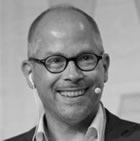 |
| WORKSHOP 1 |
|
 |
| . |
|
|
Jens Eisert
Freie Universität Berlin, Germany
Invited – Workshop 01: Topological Quantum Matter: materials growth, characterization & theory
Jens Eisert works on quantum computing and complex quantum systems. He is interested in understanding what quantum computers are good for. At the same time, he explores quantum states of matter. His work is rigorous in its methodology, but is pragmatically motivated, guided by applications and experiments. For his work, he has been awarded an ERC Advanced Grant, an ERC Consolidator Grant, the EURYI Award (the predecessor of the ERC Starting Grant) and the Google NISQ Award. He is leading the Einstein Research Unit on quantum devices in Berlin and is in the co-lead of Berlin Quantum.
|
|
|
|
|
 |
KEYNOTE
Industrial Forum |
|
 |
| . |
|
|
Artur Ekert
University of Oxford / Centre for Quantum Technologies, NUS, UK / Singapore
Keynote - Industrial Forum
Artur Ekert is one of the pioneers of quantum information science. His invention of entanglement-based quantum cryptography has linked the foundational concepts of quantum theory with the study of secure communication. This has sparked a surge in global research efforts and continues to inspire new research directions. Along with his notable discovery that Bell's inequalities can be employed to detect eavesdropping, Ekert has made numerous significant contributions to the foundational understanding and experimental implementations of quantum communication and computation. His leadership and pioneering work have been instrumental in transforming the field of quantum information science from a niche academic activity into a vibrant interdisciplinary field. Ekert is the Professor of Quantum Physics at the Mathematical Institute, University of Oxford, in the United Kingdom. He is also a Fellow of Merton College, Oxford, and a Distinguished Professor at the National University of Singapore. He played a crucial role in establishing the Centre for Quantum Technologies in Singapore, serving as its founding Director. His expert knowledge has been invaluable to numerous companies and government agencies, with whom he has actively collaborated and provided counsel. Ekert's contributions to the field have been lauded with several prestigious awards, including the 1995 Maxwell Medal and Prize from the Institute of Physics, the 2007 Royal Society Hughes Medal, the 2019 Micius Prize, and the 2024 Royal Society Milner Award. He is a Fellow of the Royal Society. Beyond academia, Ekert is a passionate scuba diving instructor and pilot.
|
|
|
|
|
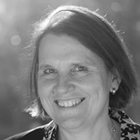 |
| PLENARY |
|
 |
| . |
|
|
Claudia Felser
Max Planck Institute for Chemical Physics of Solids, Germany
Plenary Talk
Studied chemistry and physics at the University of Cologne, diploma in solid state chemistry (1989), doctorate in physical chemistry (1994). Postdoctoral fellowships at the Max Planck Institute in Stuttgart (Germany) and the CNRS in Nantes (France), assistant professor (C1) at the University of Mainz in 1996; full professor there in 2003 (C4). Scientific Member and Director at the Max Planck Institute for Chemical Physics of Solids in Dresden.
|
|
|
|
|
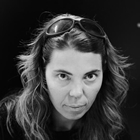 |
| INVITED |
|
 |
| . |
|
|
Francesca Ferlaino
University of Innsbruck & IQOQI, Austria
Invited – Plenary Session
Francesca Ferlaino is Professor of Physics at the University of Innsbruck (Austria). She is currently Research and Managing Director at the Institute for Quantum Optics and Quantum Information (IQOQI) of the ÖAW. Her research activity explores quantum phenomena in atomic gases at ultralow temperatures with contributions spanning topics including quantum matter of atoms and molecules and few-body and scattering physics. Over the last years, she focuses specifically on the strongly magnetic Erbium and Dysprosium atomic species, realizing in 2012 the first worldwide Bose- Einstein condensation of Erbium, and in 2018 the first dipolar quantum mixture of Erbium and Dysprosium. In 2020, she was able to prepare the first long-lived supersolid state, an elusive and paradoxical state where superfluid flow and crystal rigidity coexist. With these systems, she explored a variety of many-body quantum phenomena dictated by the long-range and anisotropic dipolar interaction among the atoms.
|
|
|
|
|
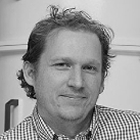 |
KEYNOTE
Industrial Forum |
|
 |
| . |
|
|
Jay M. Gambetta
IBM, USA
Keynote - Industrial Forum
Dr. Jay M. Gambetta is the Vice President in charge of IBM’s overall Quantum initiative. He was named as an IBM Fellow in 2018 for his leadership in advancing superconducting quantum computing and establishing IBM’s quantum strategy to bring quantum computing to the world, and to make the world quantum safe. Under his leadership, IBM was first to demonstrate a cloud-based quantum computing platform; a platform that has grown to become the predominant quantum service utilized by 579,000 users to run over 3 trillion quantum circuits. These users include 302 members of the IBM Quantum Network, representing forward-thinking academic, industry, and governmental organizations focused on building a quantum-native ecosystem. IBM Quantum continues to expand in the market by providing Quantum as a Service utilizing the IBM Quantum System One and Two series of devices with over 20 quantum systems available online, building the foundations of the quantum industry. In addition, he was responsible for the creation and early development of Qiskit; the leading open-source quantum computing software development kit, allowing users to build, optimize, and execute quantum circuits on hardware from a multitude of quantum service providers. Dr. Gambetta received his Ph.D. in Physics from Griffith University in Australia. He is a Fellow of the American Physical Society, IEEE Fellow, and has over 130 publications in the field of quantum information science with over 37,000 citations.
|
|
|
|
|
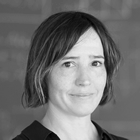 |
| TUTORIAL |
|
 |
| . |
|
|
Maia García Vergniory
Max Planck for Chemical Physics of Solids - DIPC, Germany/Spain
Topological Matter Tutorials
|
|
|
|
|
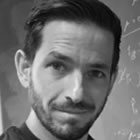 |
| WORKSHOP 1 |
|
 |
| . |
|
|
Adolfo G. Grushin
Institut Néel / CNRS, France
Invited – Workshop 01: Topological Quantum Matter: materials growth, characterization & theory
Adolfo G. Grushin is a CNRS permanent researcher at the Néel Institute in Grenoble. His research focuses on theoretical topological matter, notably using tools from high-energy physics to understand topological phases. His current work develops the theory of non-crystalline topological materials, including amorphous solids and quasicrystals. He received his Ph.D. from the Universidad Autónoma de Madrid in 2013, after which he joined the Max Planck institue of the physics of complex systems in Dresden. Later he moved as a Marie Curie postdoctoral fellow to the Physics Department at Berkeley. In 2023 he was awarded the European Physical society Early Career Awards.
|
|
|
|
|
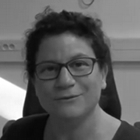 |
| WORKSHOP 1 |
|
 |
| . |
|
|
Sophie Gueron
Université Paris Saclay - LPS, France
Invited – Workshop 01: Topological Quantum Matter: materials growth, characterization & theory
My research focuses on quantum coherent phenomena in mesoscopic conductors. Most recently, this includes exploring the superconducting proximity effect in graphene-based 2D materials, higher-order topological insulators, as well as detecting orbital magnetism in isolated 2D samples to probe singularities in their band structure or the geometrical properties of their wavefunction. This research is conducted in collaboration with the members of the Mesoscopic Physics group in Laboratoire de Physique des Solides in Orsay, Université Paris Saclay, France.
|
|
|
|
|
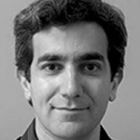 |
| INVITED |
|
 |
| . |
|
|
Mohammad Hafezi
University of Maryland, USA
Invited – Plenary Session
Mohammad Hafezi is the Minta Martin Professor at the University of Maryland with joint appointments in the Physics and Electrical and Computer Engineering Departments. He is also a fellow of both the Joint Quantum Institute and the Quantum Technology Center. He earned his undergraduate degree from École Polytechnique (Palaiseau), and his Ph.D. from Harvard University (2009). His research interests encompass quantum optics, topological physics, condensed matter, and quantum information sciences.
|
|
|
|
|
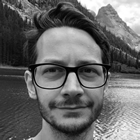 |
| WORKSHOP 2 |
|
 |
| . |
|
|
Matteo Ippoliti
The University of Texas at Austin, USA
Invited – Workshop 02: Quantum Information theory, algorithms, networks & protocols
Matteo Ippoliti an assistant professor of physics at the University of Texas at Austin. His research focuses on the structure and dynamics of quantum information in many-body systems, spanning both fundamental physics questions and practical applications in quantum information science. He received his undergraduate degree from Scuola Normale Superiore (Pisa, Italy) in 2014 and his PhD in physics from Princeton University in 2019. He was a postdoctoral fellow at Stanford University prior to joining UT Austin in 2023.
|
|
|
|
|
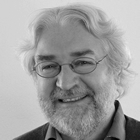 |
| WORKSHOP 5 |
|
 |
| . |
|
|
Karl Jansen
Deutsches Elektronen-Synchrotron DESY, Germany
Invited – Workshop 05: Quantum Simulation Technologies
Dr. Karl Jansen is the head of the Center for Quantum Technology and Applications (CQTA) at DESY in Zeuthen. As a theoretical particle physicist he has worked on lattice gauge theories using state of the art supercomputers to explore the non-perturbative regime of quantum field theories, most notably of lattice quantum chromodynamics, the theory of the strong interaction between quarks and gluons. Dr. Jansen has pioneered tensor network computations for models in high energy physics and demonstrated that with this approach the infamous sign problem can be circumvented. Since a number of years Dr. Jansen is performing quantum computations for experimental and theoretical problems in high energy physics but also beyond using privileged access to IBM quantum hardware through CQTA. Besides high energy physics Dr. Jansen is interested and has worked also in other fields such as fluid dynamics and theoretical biology.
|
|
|
|
|
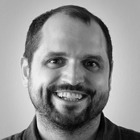 |
INVITED
Industrial Forum |
|
 |
| . |
|
|
Pau Jorba
Kiutra, Germany
Invited - Industrial Forum
Pau’s experience with cryogenics goes back to his master’s at the EPFL working on scanning hall probe microscopy at milli-Kelvin temperatures. He then moved to Munich where he completed his PhD on the investigation of new magnetic phases under high pressure using diamond anvil cells at low temperatures. Pau’s technical expertise is complemented by language skills in Spanish, Catalan, English, French and German. He joined kiutra in 2022 as a Sales Engineer and provides advice and technical support to our customers.
|
|
|
|
|
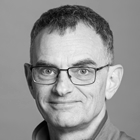 |
| TUTORIAL |
|
 |
| . |
|
|
Tomas Jungwirth
Czech Academy of Sciences, Czech Republic
Topological Matter Tutorials
Head of the Department of Spintronics and Nanoelectronics, Institute of Physics of the Czech Academy of Sciences, and Professor at the School of Physics and Astronomy, University of Nottingham, United Kingdom. Research highlights include contributions to the discovery of intrinsic (Berry phase) anomalous Hall effect in ferromagnets, spin Hall effect in non-magnets, electrical switching and detection of antiferromagnets, and of unconventional even-parity wave magnetism (altermagnetism) and odd-parity wave magnetism.
|
|
|
|
|
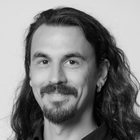 |
INVITED
Industrial Forum |
|
 |
| . |
|
|
Yemliha Bilal Kalyoncu
Qblox BV, The Netherlands
Invited - Industrial Forum
Bilal is a physicist and spends effort in bringing quantum computers to reality. As the lead application scientist of Qblox, he is specifically keen on understanding the requirements of qubit control and readout, and on matching them with Qblox's solutions. He started his studies at Bogazici university, Turkey and completed his PhD in experimental solid state physics at the University of Basel, Switzerland. He patented two applications in nanomagnetism and has experience in nanofabrication, quantum transport in 2D materials and cryogenic methods. After his PhD, he started his professional career in the scientific instruments industry to find solutions to challenging problems of experimental physics
|
|
|
|
|
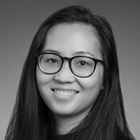 |
| INVITED |
|
 |
| . |
|
|
Angela Kou
University of Illinois Urbana-Champaign, USA
Invited – Plenary Session
Angela Kou is an experimental physicist specializing in superconducting circuits and topological materials. She did her graduate work at Harvard University on microscopic effects of the fractional quantum Hall effect. Angela’s postdoctoral research at Yale University was focused on superconducting qubits, and particularly on the fluxonium. Angela then worked as a senior researcher in the Microsoft Quantum Lab at Delft where she supervised the circuit QED group. Angela is currently an assistant professor in the UIUC physics department and a member of the Illinois Quantum Information Science and Technology Center (IQUIST) and the Chicago Quantum Exchange (CQE).
|
|
|
|
|
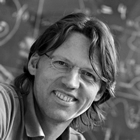 |
| KEYNOTE |
|
 |
| . |
|
|
Leo Kouwenhoven
Delft University of Technology, The Netherlands
Keynote – Plenary Session
Leo Kouwenhoven (1963) is a professor in Applied Physics specialized in the field of Quantum NanoScience. Kouwenhoven got his PhD in Mesoscopic Physics from TUDelft (1992). He was a postdoc researcher at the University of California at Berkeley (1993 and 1994) and a visiting professor at Harvard (2000/2001). Highlights in Kouwenhoven’s career include the discovery of conductance quantization in quantum point contacts (1988), Coulomb blockade in quantum dots (1991), artificial atoms (1996), the Kondo effect in quantum dots (1998), Spin qubits (2005), induced superconductivity in nanowires and nanotubes (2005,2006), spin-orbit qubits in nanowires and nanotubes (2010, 2013) and Majoranas in nanowires (2012). The current focus is on topological effects in solid state devices such as the emergence of Majoranas and topological qubits.
|
|
|
|
|
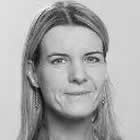 |
| WORKSHOP 2 |
|
 |
| . |
|
|
Barbara Kraus
Technical University of Munich, Germany
Invited – Workshop 02: Quantum Information theory, algorithms, networks & protocols
Prof. Mag. Dr. Barbara Kraus studied physics and mathematics at the University of Innsbruck. After post-doctoral stays at the MPI for Quantum Optics, Garching and at the University of Geneva, she returned to the University of Innsbruck. Her research has been honored by the START Prize and the Ignaz L. Lieben Prize, among others. In 2010, she founded her research group. In 2013 she became associate professor and in 2020 professor at the University of Innsbruck. In 2023, she was appointed to the professorship of Quantum Algorithms and Applications at TUM.
|
|
|
|
|
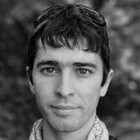 |
| INVITED |
|
 |
| . |
|
|
Anatoly Kulikov
ETH Zurich, Switzerland
Invited – Plenary Session
Since January 2012 Andreas Wallraff is a Full Professor for Solid State Physics in the Department of Physics at ETH Zurich. He joined the department in January 2006 as a Tenure Track Assistant Professor and was promoted to Associate Professor in January 2010. Previously, he has obtained degrees in physics from Imperial College of Science and Technology, London, U.K., Rheinisch Westfälische Technische Hochschule (RWTH) Aachen, Germany and did research towards his Masters degree at the Research Center Jülich, Germany
|
|
|
|
|
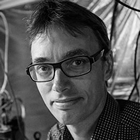 |
| INVITED |
|
 |
| . |
|
|
Peter Lodahl
University of Copenhagen, Denmark
Invited – Plenary Session
Peter Lodahl (PL) is professor in quantum physics and technology at the Niels Bohr Institute. He is the Director of the Danish National Research Foundation Center of Excellence Hybrid Quantum Networks (Hy-Q) and the Novo Nordisk Foundation center for Solid State Quantum Simulators. He is also the Founder and Chief Scientific Officer of the start-up company Sparrow Quantum that commercializes deterministic photon-emitter interfaces. PL received a PhD in quantum physics in 2000 from University of Copenhagen and subsequently held postdoc positions at Caltech and University of Twente. He was the first to demonstrate that light emission can be fully controlled by the use of intricate photonic nanostructures. This fundamental principle ultimately enables a full deterministic quantum interface between light and matter, which PL subsequently has exploited after founding his own research group in Denmark in 2005. His group develops fundamentally new quantum hardware for the emergent field of quantum-information science such as: deterministic single-photon sources, spin-photon interfaces, and photonic quantum gates. The application areas include photonic quantum computers, quantum repeaters, and quantum key distribution towards the ultimate vision of a quantum internet.
|
|
|
|
|
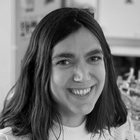 |
| WORKSHOP 7 |
|
 |
| . |
|
|
Marie-Blandine Martin
CNRS-Thales, France
Invited – Workshop 07: Topological Magnetism
Marie-Blandine Martin is a research scientist at the Laboratoire Albert Fert, a joint unit between CNRS and the French multinational company Thales. She received her PhD in Physics from the Université Paris Saclay in 2015 and did a 2-year post-doc at the University of Cambridge on the growth of 2D materials by CVD. Her research focuses on new architectures for spintronics, from 2D materials-based devices for emerging memories to skyrmion-based devices for neuromorphics applications
|
|
|
|
|
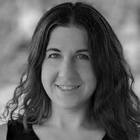 |
| INVITED |
|
 |
| . |
|
|
Yulia Maximenko
Colorado State Universtity, USA
Invited – Plenary Session
Yulia Maximenko focuses on experimental 2D quantum materials research, epitaxial thin film growth, device nanofabrication, and low-temperature scanning probe microscopy. Currently, Dr. Maximenko is an assistant professor at Colorado State University in the Department of Physics. She received a Ph.D. in physics at the University of IL at Urbana-Champaign and held a postdoctoral appointment at the National Institute of Standards and Technology (NIST), MD. During her graduate studies, she worked on scanning tunneling microscopy and thin film growth in the group of Prof. Vidya Madhavan, while during her postdoctoral appointment, she focused on ultralow-temperature scanning probe studies of twisted graphene devices in the group of Dr. Joseph Stroscio
|
|
|
|
|
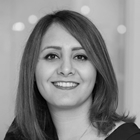 |
INVITED
Industrial Forum |
|
 |
| . |
|
|
Samira Nik
European Innovation Council (EIC), Belgium
Invited - Industrial Forum
Samira obtained a PhD in Materials Science from the Applied Physics Department of Chalmers University of Technology, specializing in superconducting quantum devices, nanoelectronics and materials characterization. She worked as R&D project manager in one of the leading foundries in the semiconductors industry in Sweden, where she developed the expertise to create proof-of-concept of innovative microelectronic devices and later she joined IMEC and through her role in the cleanroom management team learned even more about the practical obstacles that scientists and startups face. Samira transitioned from technical to policy work with becoming Project Manager - Innovation in the European Standardization Organizations (CEN-CENELEC). Since April 2022, she works a Programme Manager for Quantum Technologies and Electronics in EC European Innovation Councils and SMEs Agency, where she is responsible for developing visions for technological and innovation breakthroughs, the proactive management of EIC quantum technologies portfolio and supporting EIC beneficiaries in shaping European quantum ecosystem.
|
|
|
|
|
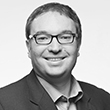 |
INVITED
Industrial Forum |
|
 |
| . |
|
|
Roman Orus
Multiverse Computing & DIPC, Spain
Invited - Industrial Forum
I am the Scientific Director (CSO) and Cofounder of Multiverse Computing, as well as Ikerbasque research professor at the Donostia International Physics Center (DIPC) in San Sebastián, Spain. After obtaining my degree and PhD in Physics at the University of Barcelona in 2006, I worked as a research fellow at the University of Queensland, Australia, and the Max Planck Institute of Quantum Optics, Germany, as well as a junior professor at Johannes Gutenberg-Universität in Mainz, Germany. I was also visiting professor at the Universitè Paul Sabatier – CNRS, France, and at the DIPC. My research has been recognized by several awards, including a Marie Curie Incoming International Fellowship, and the Early Career Prize (2014) by the European Physical Society. I have written more than 80 scientific articles about quantum research cited around 5500 times, and I am also honorary member of the steering board of the journal Quantum, member of the ‘Quantum for Quants’ (Q4Q) commission of the Quantum World Association, partner at Entanglement Partners, and president of the Specialized Group on Quantum Information at the Spanish Royal Society of Physics.
|
|
|
|
|
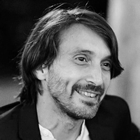 |
| WORKSHOP 3 |
|
 |
| . |
|
|
Nicola Poccia
IFW Dresden & University of Naples Federico II, Germany/Italy
Invited – Workshop 03: Growth and characterization of quantum materials for quantum technologies
Nicola Poccia is Professor at the Department of Physics of the University of Naples Federico II and at the Leibniz Institute for Solid State and Materials Research (IFW-Dresden). He received his "Laurea" in physics and received his Ph.D. in Physics and Material Science at the University of Rome "Sapienza" . He was Marie Curie Fellow at the University of Twente and at the European Synchrotron Radiation Facility in Grenoble, then joined as postdoctoral fellow the Department of Physics at Harvard University. He contributes as Editorial Board in the Communication Materials npg, Materials Today Physics journals, and is founder of the Network of Italian Scientists in Germany (SIGN), promoting the exchange of students and scientists in quantum information and technologies between Italy and Germany. His group recently received funding for his research from the ERC(Consolidator 2023), DFG and Terra Quantum AG.
|
|
|
|
|
 |
INVITED
Industrial Forum |
|
 |
| . |
|
|
Claudius Riek
Zurich Instruments, Switzerland
Invited - Industrial Forum
Claudius Riek is an Application Scientist based in Zurich. With a background in physics, he specialized on ultrafast non-linear optics and quantum electrodynamics. At Zurich Instruments, he supports customers to find the best instrument for their measurement concept. If you meet him at a conference, ask him about the evolution of vacuum fluctuations in space-time, the most recent developments in quantum computing instrumentation, or tell him what you are passionate about – he will be interested in learning more.
|
|
|
|
|
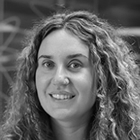 |
| WORKSHOP 1 |
|
 |
| . |
|
|
Carmen Rubio Verdú
ICFO, Spain
Invited – Workshop 01: Topological Quantum Matter: materials growth, characterization & theory
Carmen Rubio-Verdú is a Group Leader at ICFO (Barcelona). Her research focuses on the correlated phases that emerge in two-dimensional materials. She is currently working in the field of moiré quantum matter. As an expert in Scanning Tunneling Microscopy and Spectroscopy, she would like to interrogate the correlated phases that emerge in twisted graphene structures, such as superconductivity.
|
|
|
|
|
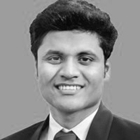 |
INVITED
Industrial Forum |
|
 |
| . |
|
|
Anurag Saha Roy
Qruise, Germany
Invited - Industrial Forum
Anurag Saha Roy is the Chief Product Officer at Qruise. He is an experienced engineer and entrepreneur with a background in cold atoms and superconducting qubits based quantum technologies. At Qruise, he leads a team of physicists and software engineers developing tools to automate and accelerate the development of quantum devices through faster & better calibration and characterisation.
|
|
|
|
|
 |
| WORKSHOP 3 |
|
 |
| . |
|
|
Nitin Samarth
Penn State University , USA
Invited – Workshop 03: Growth and characterization of quantum materials for quantum technologies
Nitin Samarth is Verne M. Willaman Professor of Physics and Professor of Materials Science & Engineering at the Pennsylvania State University, where he also serves as Associate Director of the 2D Crystal Consortium, an NSF-funded Materials Innovation Platform user facility. He received his undergraduate degree in physics from IIT Bombay and earned his Ph.D. in physics at Purdue University. He is a Fellow of the APS and AAAS. His research interests center on the synthesis, physics, and applications of epitaxially engineered quantum materials at the interface between topology, magnetism, and superconductivity.
|
|
|
|
|
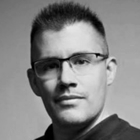 |
| WORKSHOP 2 |
|
 |
| . |
|
|
Mikel Sanz
NQUIRE Center - UPV/EHU, Spain
Invited – Workshop 02: Quantum Information theory, algorithms, networks & protocols
Mikel Sanz is a Ramon y Cajal Researcher and Ikerbasque Fellow affiliated with the University of the Basque Country (UPV/EHU) and the Basque Center for Applied Mathematics (BCAM). He conducted the research associated with his thesis at the Max Planck Institute for Quantum Optics in Garching, Germany, and earned his PhD from the Technical University of Munich in 2011. His research focuses on quantum technologies, specifically in the realms of quantum computation and quantum metrology. Regarding quantum computing, he engages in diverse topics ranging from the development of innovative quantum algorithms to the design of superconducting quantum processors, quantum benchmarking, and quantum machine learning. In the field of quantum metrology, he displays a particular interest in crafting practical quantum radars and lidars, along with a broader exploration of real-life applications of quantum parameter estimation.
|
|
|
|
|
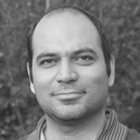 |
| WORKSHOP 3 |
|
 |
| . |
|
|
Javad Shabani
New York University, USA
Invited – Workshop 03: Growth and characterization of quantum materials for quantum technologies
Javad Shabani is an Associate Professor of Physics and Director of Center for Quantum Information Physics at New York University. He received his Ph.D. from Princeton University and conducted post-doctoral research at Harvard University and University of California, Santa Barbara. His research interests are mainly on developing novel quantum hardware using materials innovation with recent research focus on topological superconductivity, developing voltage-controlled superconducting qubits and building a telecom test-bed for quantum communication in New York City. He is an active member of IEEE, American Physical Society, Materials Research Society and quantum education and workforce development in New York area. He is recipient of IBM Q Scholar, US Army and US Air Force young investigator awards.
|
|
|
|
|
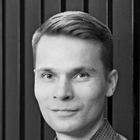 |
| WORKSHOP 5 |
|
 |
| . |
|
|
Matti Silveri
University of Oulu, Finland
Invited – Workshop 05: Quantum Simulation Technologies
I am a theoretical physicist leading a research group at the University of Oulu, Finland. Our focus is quantum simulations, computing and devices based on superconducting circuits. More specifically we are interested in many-body physics and open quantum system phenomena, quantum error correction and quantum computing use-cases in transmon arrays by combining analytic, numerical and collaborative experimental methods and approaches. I received my PhD degree in 2013 from University of Oulu. From 2013 to 2016, I was as a Postdoctoral Associate at Yale University, USA. In 2016, I came to Oulu and Aalto as postdoctoral researcher focusing on many-body localization and hybrid devices. Since 2023 I have been an Associate Professor at the University of Oulu.
|
|
|
|
|
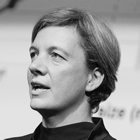 |
| KEYNOTE |
|
 |
| . |
|
|
Michelle Simmons
University of New South Wales, Australia
Keynote – Plenary Session
Professor Simmons is Director of the Centre of Excellence for Quantum Computation and Communication Technology and an Australian Research Council Laureate Fellow. She has pioneered unique technologies internationally to build electronic devices in silicon at the atomic scale, including the world's smallest transistor, the narrowest conducting wires, 3D atomic electronics and the first two qubit gate using atom-based qubits in silicon. As founder of Silicon Quantum Computing Pty Ltd, her team is at the forefront of developing a silicon-based quantum computer. Michelle is one of a handful of researchers in Australia to have twice received an Australian Research Council Federation Fellowship and now a Laureate Fellowship. She is a Fellow of the Royal Society of London, the American Academy of Arts and Science, the American Association of the Advancement of Science, the UK Institute of Physics, the Australian Academy of Technology and Engineering and the Australian Academy of Science. In 2018 Professor Simmons was named Australian of the Year, one of the nation’s pre-eminent awards.
|
|
|
|
|
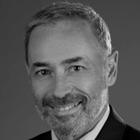 |
| WORKSHOP 7 |
|
 |
| . |
|
|
Jairo Sinova
Johannes Gutenberg University Mainz, Germany
Invited – Workshop 07: Topological Magnetism
Sinova is an Alexander von Humboldt Professor of Physics at Johannes Gutenberg Universität Mainz and director of the Spin Phenomenal Interdisciplinary Center (SPICE). He has received the Alexander von Humboldt Professorship Award, the Johannes Gutenberg Research Fellowship, the ERC Advance Synergy Grant, National Science Foundation’s Career Award, the Cottrell Scholar Award, and is a Fellow of the American Physical Society. Research highlights include the discovery of intrinsic spin Hall effect and development of a complete theory of anomalous Hall transport, prediction of the Néel spin-orbit torque for the electrical manipulation of antiferromagnets, and the discovery of altermagnetism (even-parity wave collinear magnetism), and unconventional odd-parity wave magnetism.
|
|
|
|
|
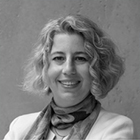 |
| WORKSHOP 5 |
|
 |
| . |
|
|
Magdalena Stobinska
Warsaw University, Poland
Invited – Workshop 05: Quantum Simulation Technologies
|
|
|
|
|
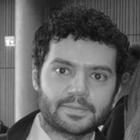 |
INVITED
Industrial Forum |
|
 |
| . |
|
|
Felice Francesco Tafuri
Keysight Technologies, USA
Invited - Industrial Forum
Felice Francesco Tafuri received the B.Sc. in 2007 and the M.Sc. in 2010 in Electronics Engineering, both cum laude, from the Polytechnic of Bari, Italy. In 2014 he obtained the Ph.D. degree from Aalborg University, Denmark with a dissertation on linearity and efficiency enhancement of mobile communication power amplifiers. From 2014 till 2018 he was an industrial postdoc with Aalborg University and Keysight Technologies Denmark, working on advanced measurement platforms for characterization and modeling of RF power amplifiers. Since 2018 he has been with Keysight Technologies Spain as an Application Engineer. In 2023 he joined the Quantum Engineering Solution team as a Quantum Solution Expert. His research interests include digital signal processing applications to measurement techniques and qubit characterization techniques.
|
|
|
|
|
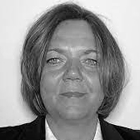 |
INVITED
Industrial Forum |
|
 |
| . |
|
|
Jelena Trbovic
QuantrolOx, Finland
Invited - Industrial Forum
Jelena is a physicist and an expert in quantum, nanotechnology, and material science. She graduated from Florida State University in the USA and held a postdoctoral position at the University of Basel, Switzerland before joining Zurich Instruments as an Applications Manager for nanotechnology and magnetism. She has collaborated closely with top universities worldwide as a Product Manager for lock-in amplifiers and developed businesses for quantum systems control electronics in the UK and EMEA region. She is passionate about quantum technologies and helping physicists and engineers develop good measurement practice
|
|
|
|
|
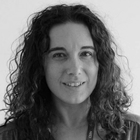 |
| WORKSHOP 5 |
|
 |
| . |
|
|
Sofia Vallecorsa
CERN, Switzerland
Invited – Workshop 05: Quantum Simulation Technologies
PhD in High Energy Physics with significant accumulated expertise across the full research chain from real data analysis to simulation workloads of large scientific experiments (CDF experiment at Fermilab and ATLAS at CERN). Specialised in scientific computing, with commanding expertise in Machine Learning/Deep Learning architectures, frameworks and methods for distributed training and hyper-parameters optimization, on different environments ranging from public clouds to public-funded HPC centres, using (not limited to) Intel solutions, across scientific fields such as High Energy Physics and Earth Observation. Responsible for several projects in Machine Learning/Deep Learning, Quantum Computing and Quantum Machine Learning. Supervisor of several master (MsC) and doctoral (PhD) thesis in the fields of Deep Learning, Quantum Computing and Quantum Machine Learning. Member of the External Advisory Board of the EU H2020 NEANIAS project (https://www.neanias.eu/): novel EOSC services for Emerging Atmosphere, Underwater and Space Challenges. Member of the European Synchrotron Radiation Facility (ESRF) IT Expert Panel for Machine/Deep Learning.
|
|
|
|
|
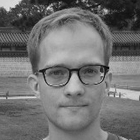 |
| WORKSHOP 4 |
|
 |
| . |
|
|
Visa Vesterinen
VTT, Finland
Invited – Workshop 04: Devices & Technologies for Quantum Computing
Dr. Visa Vesterinen is a Senior Scientist at VTT Technical Research Centre of Finland Ltd. He received his M. Sc. (Tech.) and D. Sc. (Tech.) in Engineering Physics at Aalto University in 2010 and 2015, respectively. In his Ph. D., he studied microwave-coupled superconducting circuits for sensing and quantum information processing. He is the leader of the Applied Quantum Electronics team within the Finnish Centre of Excellence in Quantum Technology as well as the Finnish Quantum Flagship, both of which are funded by the Research Council of Finland. Dr. Vesterinen also leads a work package in the EU Quantum Flagship project OpenSuperQPlus. His main research topic is Josephson parametric amplifiers and their applications.
|
|
|
|
|
 |
| KEYNOTE |
|
 |
| . |
|
|
Amir Yacoby
Harvard University, USA
Keynote – Plenary Session
Amir Yacoby is a Professor of Physics at Harvard University. He is also a Professor of Applied Physics at the School of Engineering and Applied Sciences at Harvard University and a visiting Professor at the University of Waterloo. He currently holds the Lazaridis Chair in Physics.
|
|
|
|
|
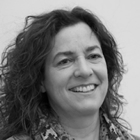 |
| INVITED |
|
 |
| . |
|
|
Susanne Yelin
Harvard University, USA
Invited – Plenary Session
Susanne Yelin's research interests are in theoretical quantum optics and quantum information science. Current research directions include cooperative open quantum systems, nonlinear and many-body quantum optics, analog-digital hybrid quantum machine learning and applications to materials and quantum chemistry. She is a professor in residence in Harvard's Physics Department since 2020, a director of the MIT/Harvard Center for Ultracold atoms and part of the program in Quantum Science and Engineering at Harvard.
|
|
|
|
|
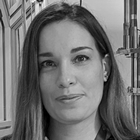 |
| WORKSHOP 4 |
|
 |
| . |
|
|
Silvia Zorzetti
Fermilab, USA
Invited – Workshop 04: Devices & Technologies for Quantum Computing
Silvia Zorzetti is a principal engineer at the Fermi National Accelerator Laboratory. She is currently serving as head of the co-design department at the SQMS Division. She also leads the ecosystem and workforce development thrust for the SQMS Center. Silvia joined Fermilab in 2017 as a Bardeen Fellow. While earning her Ph.D. in electronics engineering and information technology from the University of Pisa, she was a Marie Skłodowska-Curie Fellow at the European Council for Nuclear Research (CERN). She is focusing on quantum systems to enable applications on long-coherence quantum devices. In 2023, she received the Department of Energy Early Career Award for her research in quantum transduction.
|
|
|
|
|
| |
|
|

